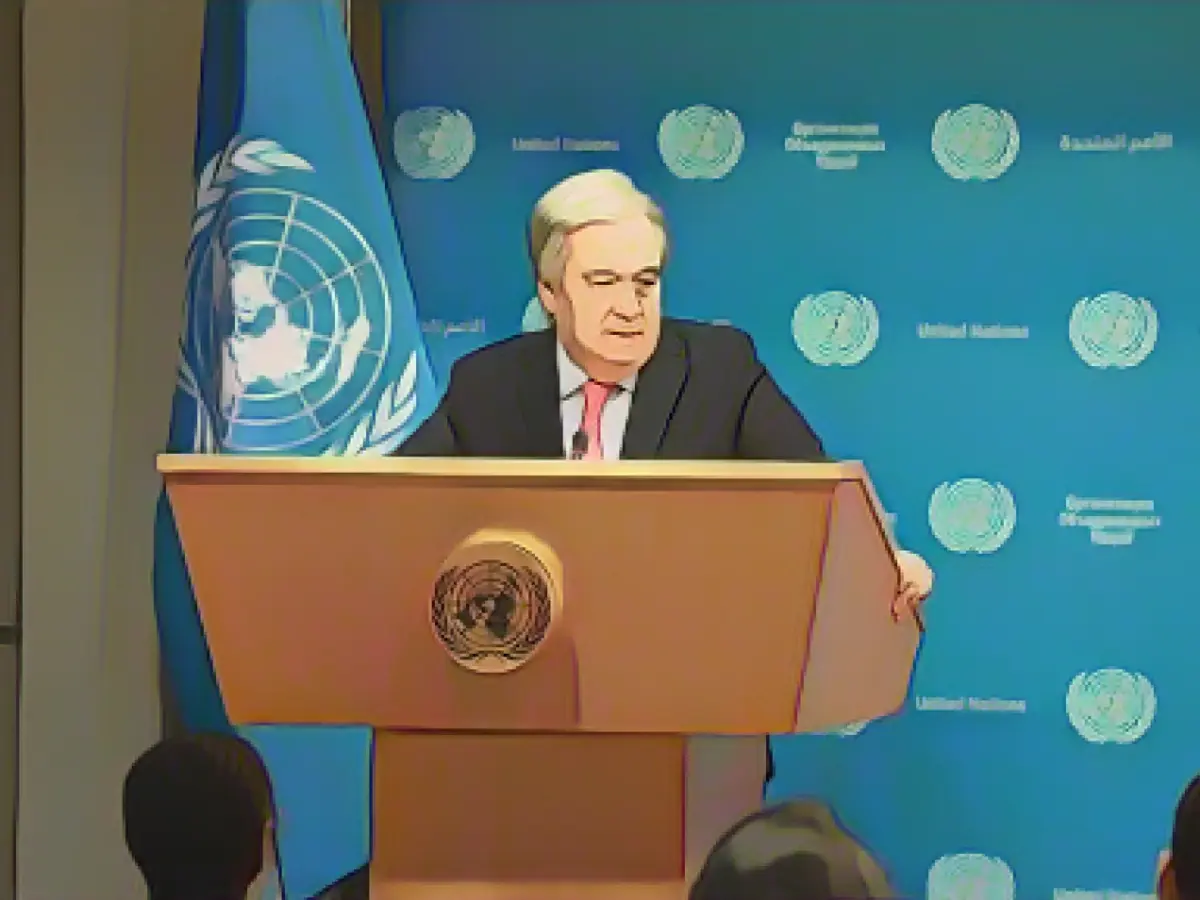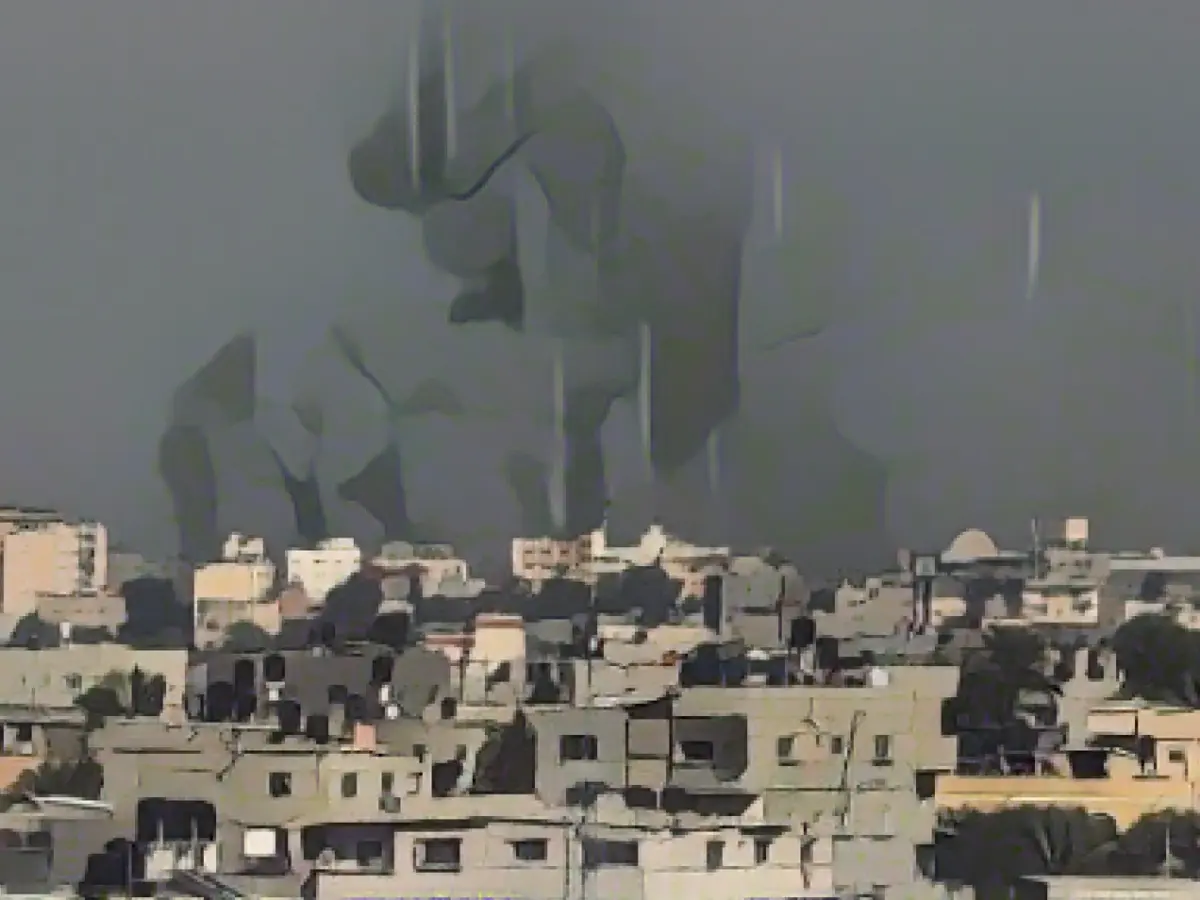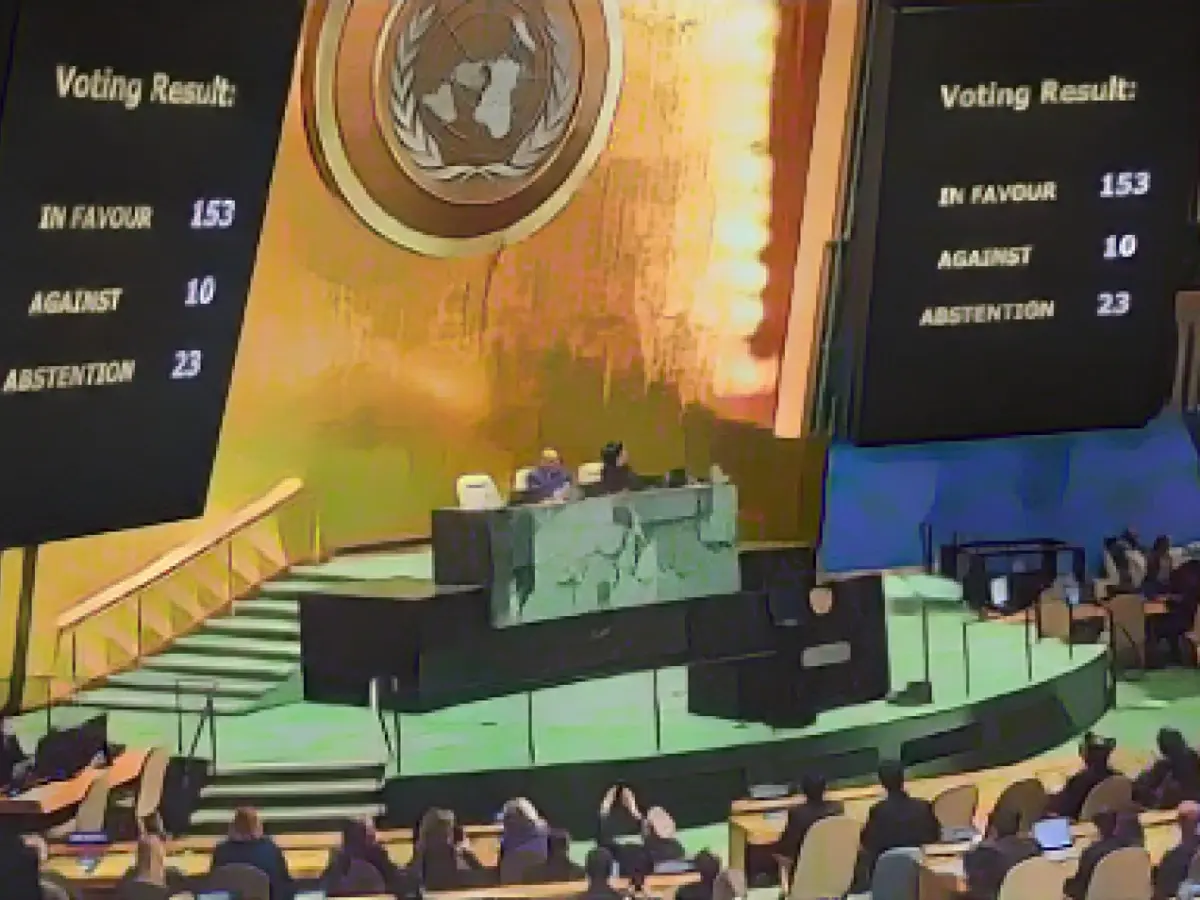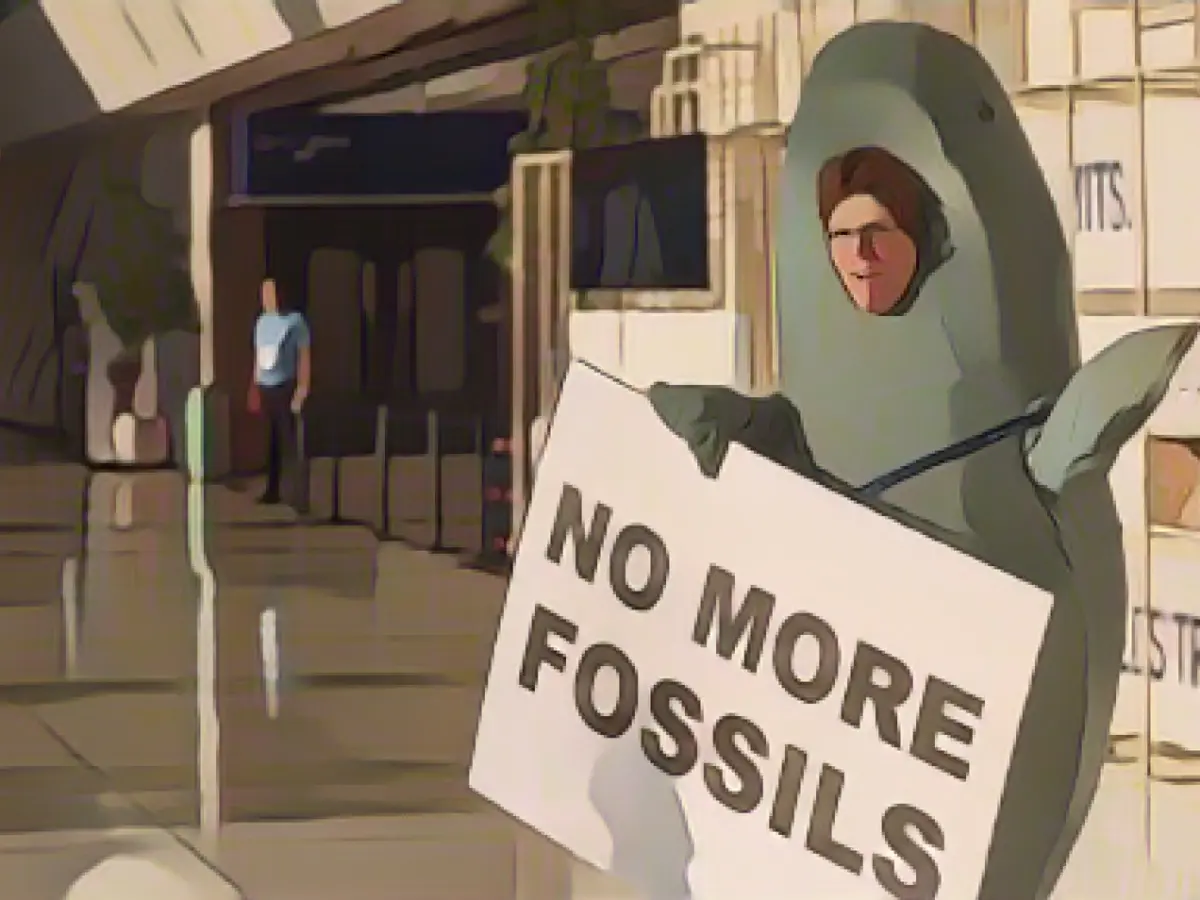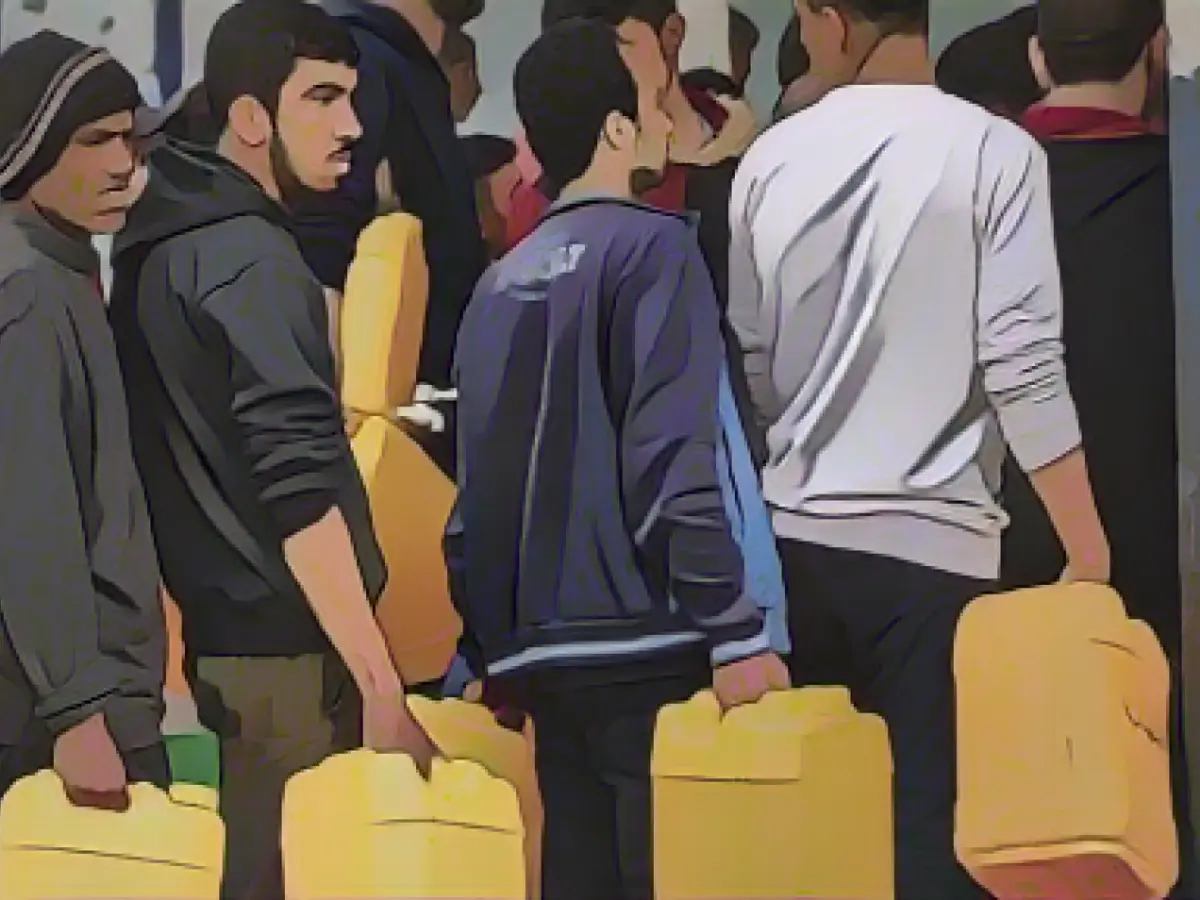Conflicting Feedback on UN Resolution Amidst Gaza Crisis - Israel Stands Firm Against Hamas
The compromise proposed by the UN Security Council, aiming to bolster humanitarian aid for approximately two million people in distress within Gaza, has sparked a diverse range of reactions. While some express relief that the UN's influential body isn't entirely blocked from addressing the heart-wrenching plight of the Palestinian population, others remain skeptical regarding the resolution's quality.
UN Secretary-General António Guterres conveyed his concerns that more urgent help is required for the people of Gaza, acknowledging the resolution's inadequacy in fully addressing their pressing needs. The resolution, however, garnered support from nations within the Council, pining for an immediate halt to the violence and safe, unhindered humanitarian access to the region, despite its allegedly watered-down text.
UN Ambassador Lana Nusseibeh, instrumental in crafting the agreement, deemed it "imperfect" but urged for a ceasefire to alleviate Gaza's pressing humanitarian crises. China also expressed discontent with the resolution's text, underlining the importance of bringing an end to the violence. Its effectiveness remains to be seen, considering its substantial impact on international law's consequences for non-compliance is presumably manageable.
Despite numerous talks and deliberations, the UNSC barely escapes a US veto on the resolution due to Israel's backing. The resolution ultimately passages with 13 favorable votes and Russia and the US choosing to abstain, following a challenging negotiation process.
Israel exercises stringent control over humanitarian aid, reporting a resolute stance on inspecting all aid heading to Gaza for security reasons. This action was a significant concession to the US in the resolution, forfeiting the UN's claim to a monopoly on aid inspections to avoid the potential influx of smuggled weapons.
American diplomats consider the resolution a potential obstacle to ongoing negotiations. Difficulties in passing even duplicate resolutions have gone unresolved between the UNSC and the US. The US has maintained a consistent position of supporting Israel, stating precisely that a proposed resolution may compromise ongoing efforts in the region.
In recent times, over 577,000 Palestinians find themselves struggling against severe hunger within the Gaza Strip, a staggering figure that eclipses starvation threat levels in the world combined. With the disturbing exception of the October 7 terror attack orchestrated by Hamas, Israel sealed off and attacked the Gaza Strip, sparking a crisis in food and water security.
Recently, Günther Jauch, a renowned German television personality, shared thoughts on the escalating violence in the region, highlighting the dire situation and engaging in a conversation about the unfolding Israeli-Palestinian conflict.
What waits in the wings for this Saturday?
In the aftermath of a vicious skirmish in Chan Junis, strategic stronghold for Hamas, Israeli armed forces plan to consolidate territory control in the Gaza Strip's north. Simultaneously, troops prepare to expand their operations to different regions, primarily focusing on the south. This potential spread of Israeli reach could, in turn, significantly shape the outlook for Palestinians and precipitate a critical turning point in the conflict.
Sources:
Insights:
- Over 2 million people in Gaza critically depend on humanitarian aid, constituting either an immediate security threat or the evolving tension between international law and regional allies.
- Since the UN's initiative, a ceasefire has allowed for a significant surge in humanitarian aid, including medical supplies, food, water, and other essential services.
- UNRWA's operations in Gaza are under threat due to Israeli legislation curtailing its operations, which could dampen the ceasefire's impact and potentially sabotage the region's recovery efforts.
- The conflict's staggering toll on civilians, particularly women and children, has left Gaza's humanitarian response severely constrained, further exacerbating challenges faced by the populace.
- The UNSC's concerns revolve around ensuring safe and unimpeded humanitarian access while addressing underlying tensions between international law and regional allies.
